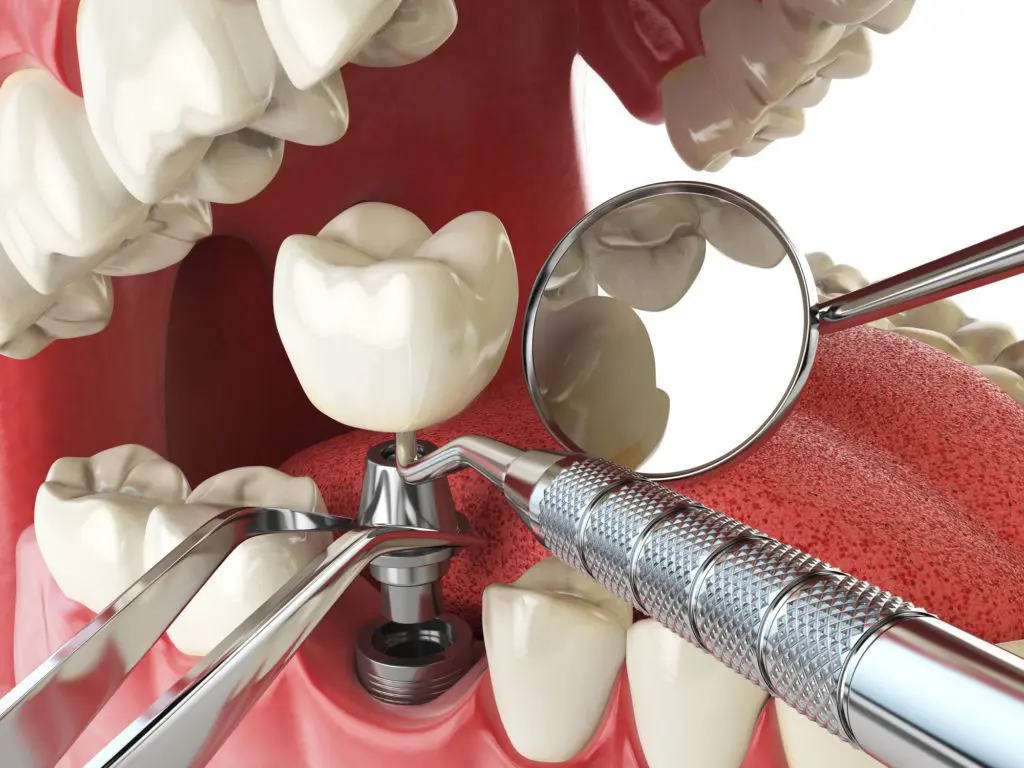Wanting to get Dental Implants near you?
Look no further! Our experienced dental team specializes in providing high-quality dental implant treatments that can restore your smile and improve your oral health. Dental implants are a long-lasting and natural-looking solution for replacing missing teeth.
Book an appointment with us now, to explore the possibilities of dental implants and regain your confident smile.
When do you need
Dental Implants?
Dental implants are needed in various situations where one or more teeth are missing or need to be replaced. Here are some common scenarios when dental implants are recommended:
- Single Tooth Replacement
- Multiple Teeth Replacement
- Full Arch Restoration
- Jawbone Preservation
- Enhanced Stability and Function
- Improved Aesthetics
To determine if dental implants are the right option for you, it is essential to consult with a dental professional who can assess your oral health, discuss your specific needs and goals, and recommend the most suitable treatment plan.

FAQ
Dental implants are prosthetic tooth roots made of biocompatible materials, typically titanium, that are surgically placed into the jawbone. They serve as a sturdy foundation for the attachment of replacement teeth or dental restorations. Dental implants are designed to mimic the function and appearance of natural teeth, providing a long-lasting and reliable solution for tooth replacement.
Dental implants are needed for various reasons when one or more teeth are missing or need to be replaced. Here are some common reasons why dental implants may be recommended:
- Restoring Tooth Function
- Enhancing Aesthetics
- Preventing Bone Loss
- Preserving Healthy Teeth
- Long-Lasting Solution
- Improved Confidence and Self-Esteem
To determine if dental implants are the right solution for your specific needs, it is best to consult with a dental professional. They can assess your oral health, discuss your goals and expectations, and create a personalized treatment plan tailored to your situation.
There are several types of dental implants available, each designed to meet specific needs and circumstances. Here are some common types of dental implants:
Endosteal Implants: Endosteal implants are the most common type of dental implants. They are typically shaped like screws or cylinders and are surgically placed directly into the jawbone. Once the implant integrates with the bone during the healing process, a dental restoration such as a crown, bridge, or denture can be attached to the implant.
Subperiosteal Implants: Subperiosteal implants are an alternative option for patients with insufficient jawbone density or height. Instead of being placed inside the jawbone, these implants are positioned on or above the jawbone, beneath the gum tissue. They consist of a metal framework that supports the dental restoration, which is then attached to the implants.
All-on-4 Implants: The All-on-4 technique is a specific implant placement method used for full arch restoration. With this approach, four strategically positioned implants are placed in the jawbone to support a fixed dental bridge or denture. This method provides stability and eliminates the need for individual implants for each missing tooth.
Mini Implants: Mini implants are smaller in diameter compared to standard dental implants. They are often used when there is limited bone volume or for patients who require stabilization of removable dentures. Mini implants can be placed with less invasive procedures and can be loaded with restorations immediately.
The choice of dental implant type depends on various factors, including the patient's oral health, jawbone condition, specific tooth replacement needs, and the recommendations of the dental professional. During a consultation, your dentist or implant specialist will evaluate your case and determine the most suitable type of dental implant to meet your unique requirements.
The cost of dental implants can vary depending on several factors, including:
Number of Implants
Preparatory Procedures
Location
Implant Material
Restoration
Additional Treatments
It's important to note that dental insurance coverage for implants varies, and not all insurance plans provide full or partial coverage. It's recommended to check with your insurance provider to understand the extent of coverage for dental implant procedures.
To get an accurate cost estimate for dental implants, it is best to consult with a dental professional. They will evaluate your specific case, consider your oral health needs, and provide a personalized treatment plan with a breakdown of the associated costs.

